
Welcome to part 31 of our journey! You will have noticed that part 30 ended on a great note and we covered some of the new projects I'm working on this year. What I wanted to go through today is communities of reading and what they mean for people who enjoy books. I want to go through the pros and cons briefly and look at ways in which reading communities may be able to improve their aspect on inclusion.
The main pro of a reading community is that we then have other who are reading the same books as us and we therefore have people to talk and discuss with. We have the various other people, no matter of what background, reading along and no matter what point of the book we are at, we know that at the end of the month we can all come together and talk about it - we should be all finished at that point. The con to this is that there could be others who don't particularly like that pick of the month and though you cannot please everyone, a place in which suggestions can be made or votes can be cast would help lower those numbers. It would also make people feel included within the logistics of the group.
I have always enjoyed various read-alongs. In my time I have enjoyed several read-alongs purely because I've normally read the books in question and they give me a relaxing time to read and talk to others whilst very specific plot points and character points are underway. It is a very controlled environment of a book club and yet, it is up and open for discussion from practically anyone. One thing that is clearly good about read-alongs is the ability to discuss because of the way in which the controlled atmosphere offers us a good amount of people who are in exactly the same place in the book. Spoilers are therefore at a greater minimum.
So, without further introduction and discussion - let's begin with part 31 - here are numbers 601 through to 620...
601. A Thousand Moons by Sebastian Barry
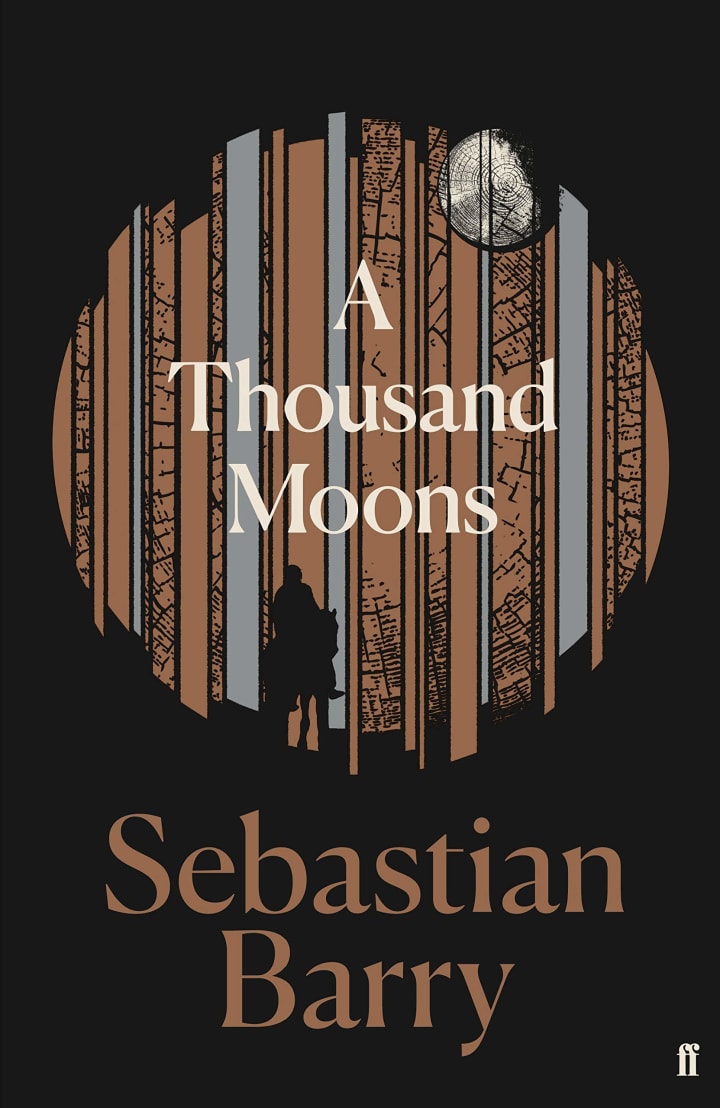
This book was very emotional and might I say that I preferred this one to his book "Days Without End" (even though that was good too). This book is about a woman called Winona in the midst of the American Civil War. Her mother and other relatives are dead and she is cohearsed into marrying an aloof and slightly abusive man called Jas Jonski. Meanwhile, characters like Thomas and John Cole are scared they're going to lose Winona to her new life and then things take a turn for the worst. The ending is absolutely moving and I really think this may be my favourite Sebastian Barry novel ever.
602. Indian Summer by William Dean Howells
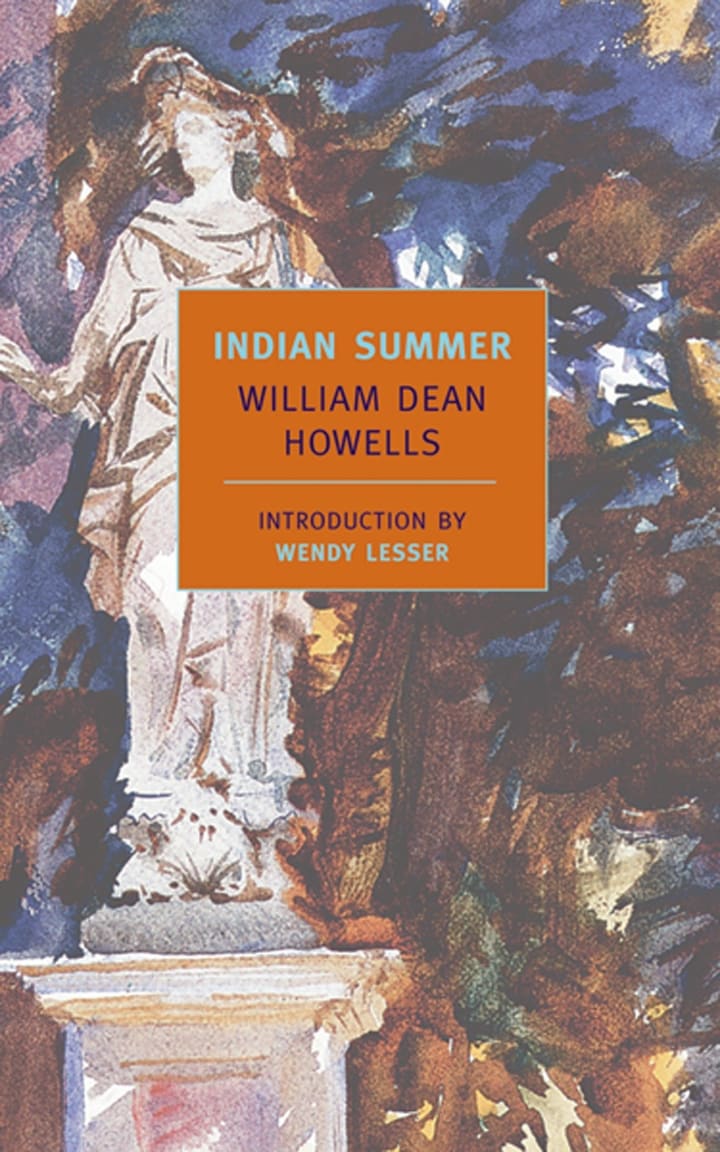
This book is about a man from America who desperately wanted to move to Italy all his life. When he finally does, a comedy unfolds. He falls madly in love with a woman living in Italy and they spend an awful lot of time together, but when he becomes obsessed with a different woman he meets, everything turns upside down and it feels like Italy may not be the best place for him after all. Filled with satirical language on the human condition, this book is an absolute joy to read.
603. The History of London by Sir Walter Besant
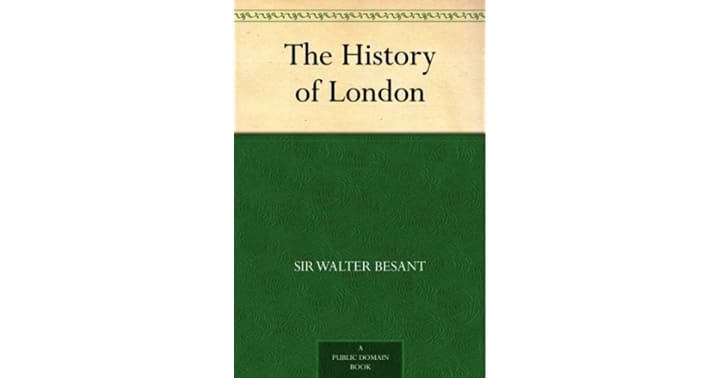
I actually thought that this book was going to be so dead boring, but instead it was really informative on the life in London before London was the city we know today. Not just the stuff that happened during the Renaissance and Romantic Eras but also the stuff that happened during the sack of Rome and throughout the Roman Period in which London and England were first made occupied land by westerners. However, I would've liked a longer book seeing as it is rather short and doesn't go into a lot of depth.
604. A Street of Paris and Its Inhabitant by Honore de Balzac
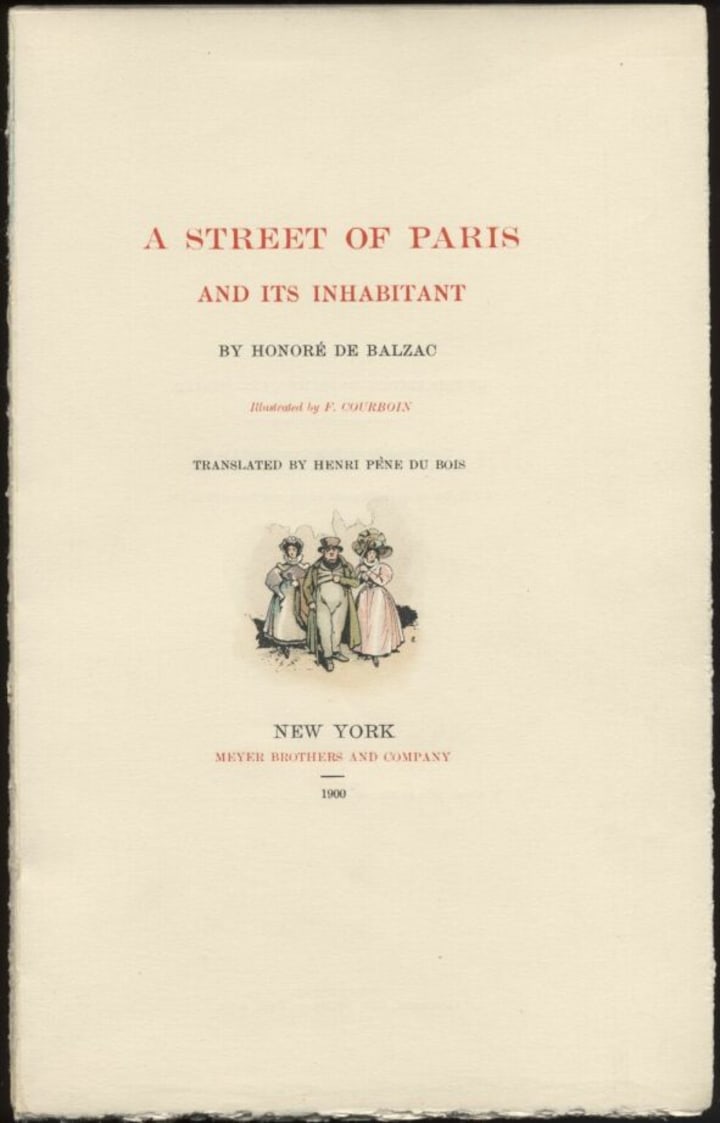
This is a short story about a number of things. First of all, we are introduced to the spiralling and curving streets of Paris and then, we are introduced to a man of science as its inhabitant. We are taken to a dinner party with his wife and his sister-in-law who are planning an intervention with him about his work and his marriage. Ultimately, it is written in classic witty Balzac style with a focus on how men and women are different in the best of ways.
605. Three Months in the Southern States by Col. Fremantle
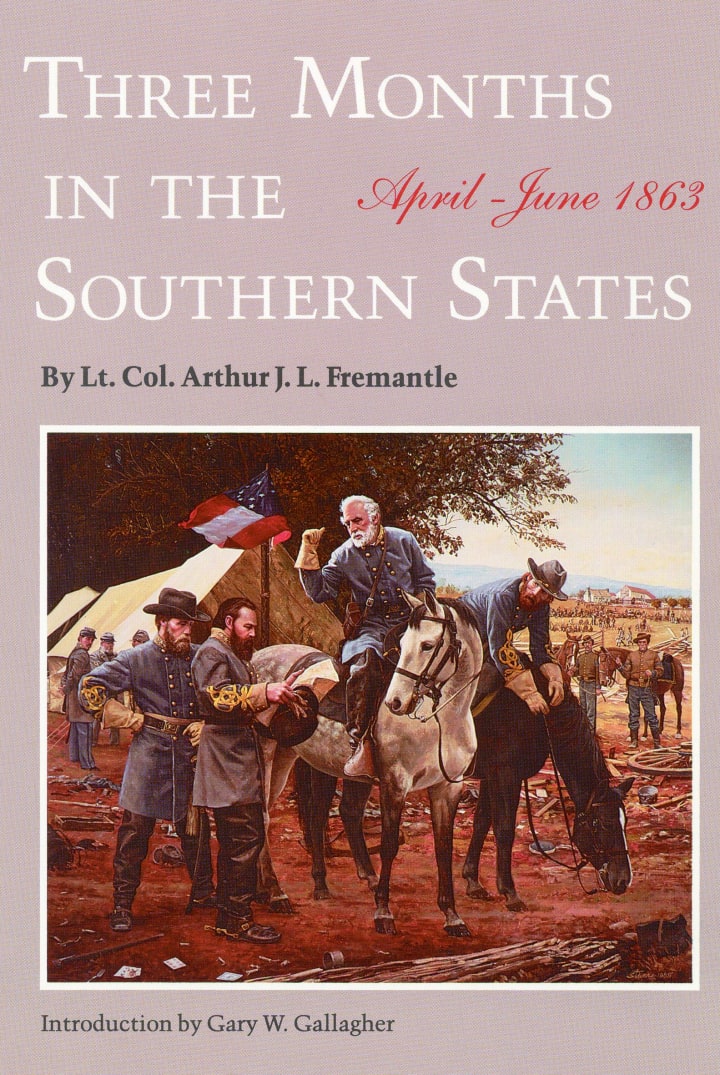
This is a Colonel who supports the values of the North travelling in the South during the times of the American Civil War - specifically three months during the Spring/Summer of 1863. He gets to see what is fundamentally wrong with the way in which they are doing things. We also see the way in which the narrator travels and analyses the methods of war carried out by the Southern States, the dread and the strangeness of a land that can support these grievous crimes against its fellow man - like slavery. It is almost too much to see and take in all at once.
606. An Unexplained Death by Mikita Brottman
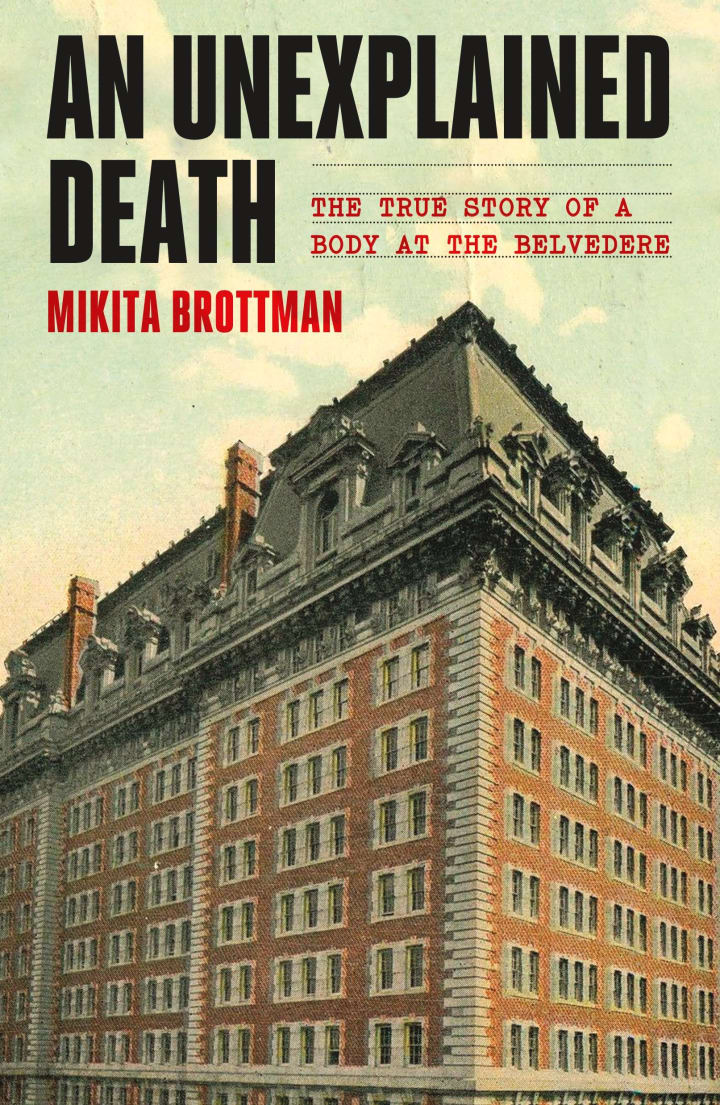
When a man goes missing and a hotel has a history with suicides in question, Mikita Brottman comes in to try and document what is a very real case. Complete with documents and missing person photographs, this book gives us way more than just a solving of a true crime story. It's a strange history of disappearances, bodies turning up and people with no history of mental illness whatsoever being driven to kill themselves. It is so dark and raw, psychological and in most aspects, it is torturous in its treatment of criminality and the possibility that maybe someone, somewhere, was involved.
607. Mystic London by Charles Maurice Davies
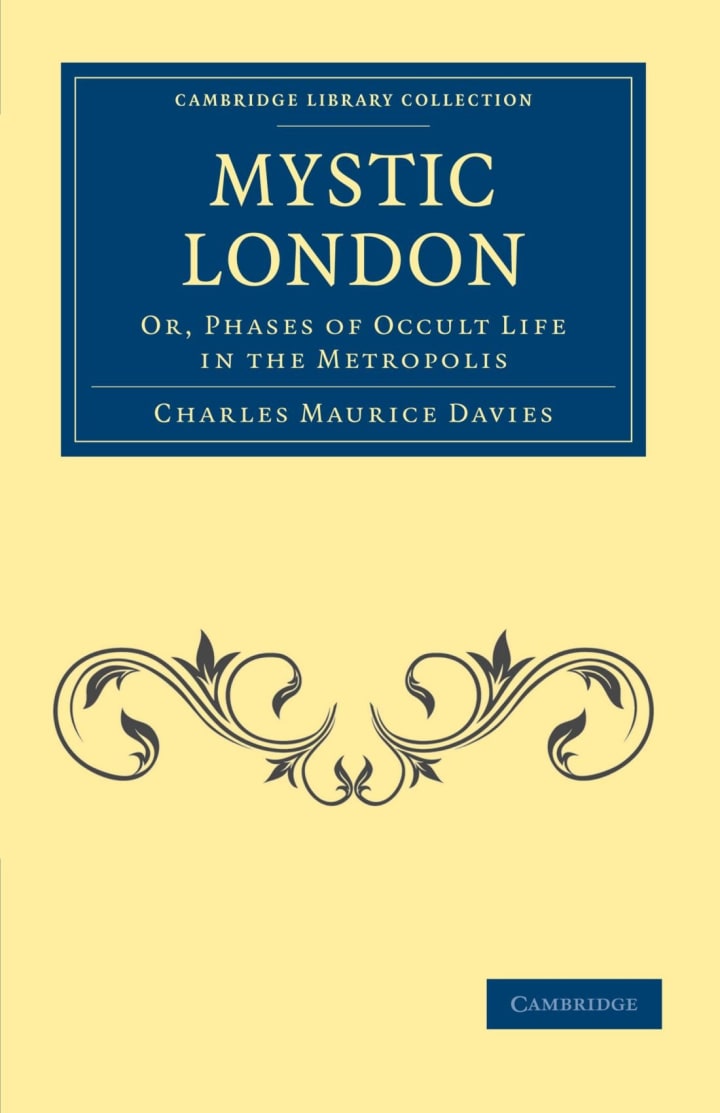
Honestly, this book was very slightly racially insensitive to the more oriental population of London during this time. However, it was well-written no matter how short and often lacking in detail it was. The main thought I had though was that the term 'occult' is normally used in the wrong context because it doesn't mean the same thing as 'mysticism' and that is completely the author's fault. But overall, these are the only faults I had with the book. It was entertaining on the subjects of the unorthodox in London whilst it lasted.
608. The Notting Hill Mystery by Charles Warren Adams
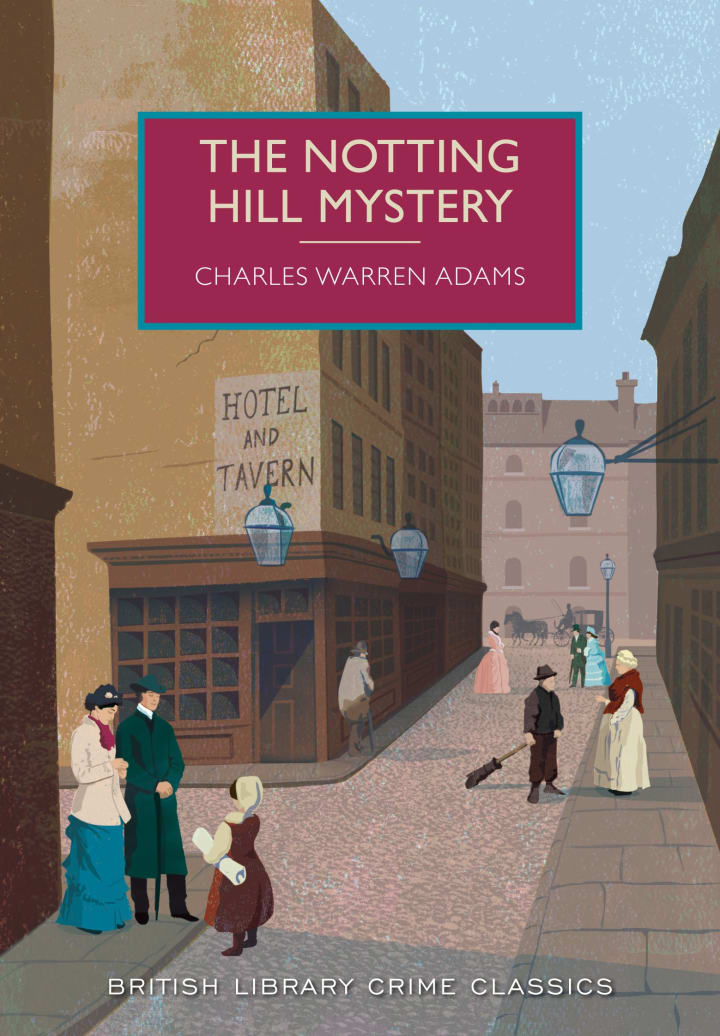
This was one of the more confusing novels of the British Library Crime Classics because it's not written anything like a linear narrative instead, it is told in testimonies, diary entries by various people and letters - often reminding me of the structure of "Dr. Jekyll and Mr. Hyde" by Robert Louis Stevenson. This book deals with a death in the first quarter of the novel in which a man and a pistol have been found. After this, it seems to be put together by various sources as to what actually happened to him and no matter how interesting it was, I could totally see the ending coming.
609. Nostromo by Joseph Conrad
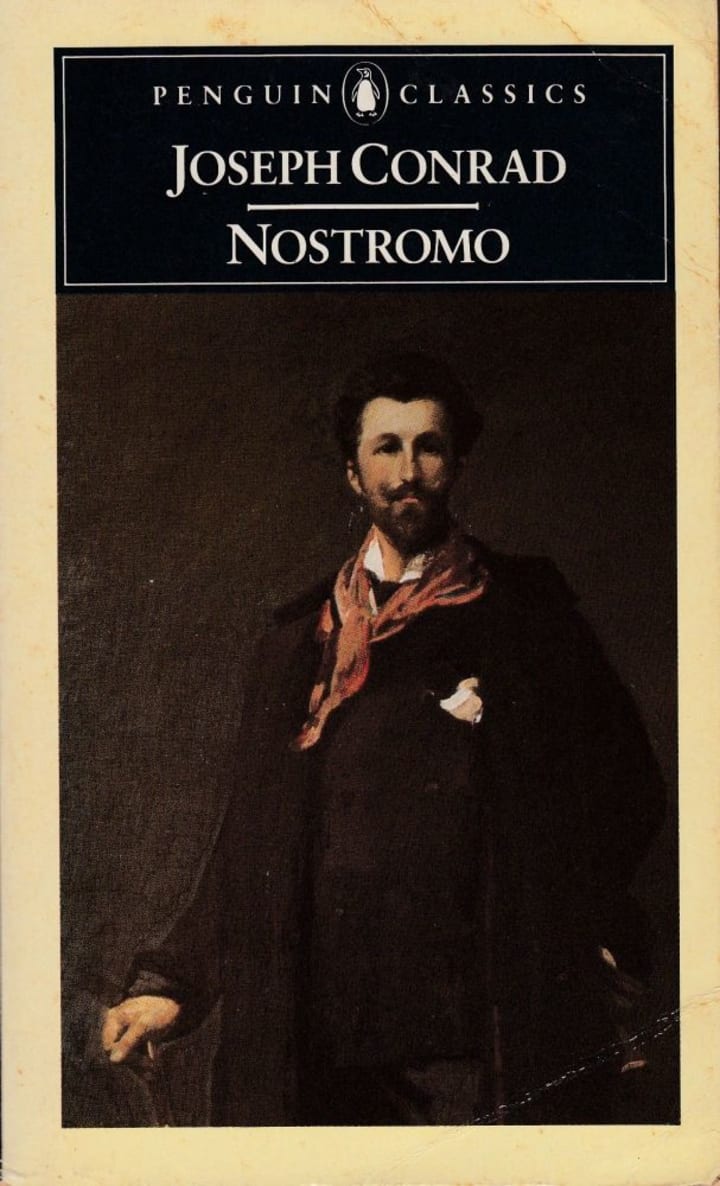
This book has all the violence of a Joseph Conrad novel and all the colonial stuff you'd expect from reading "Heart of Darkness". However, I was not convinced about the characters since their depression often overtakes the will to act and since a (fictional) war is going on, I'm not sure that this actually would've happened since the will to act is often linked to the will to survive. We have these massive moments of despair that I think would've been tainted more with action rather than inaction. Often, this book confused me and I cannot say that it was my favourite book by Conrad.
610.The Bell by Iris Murdoch
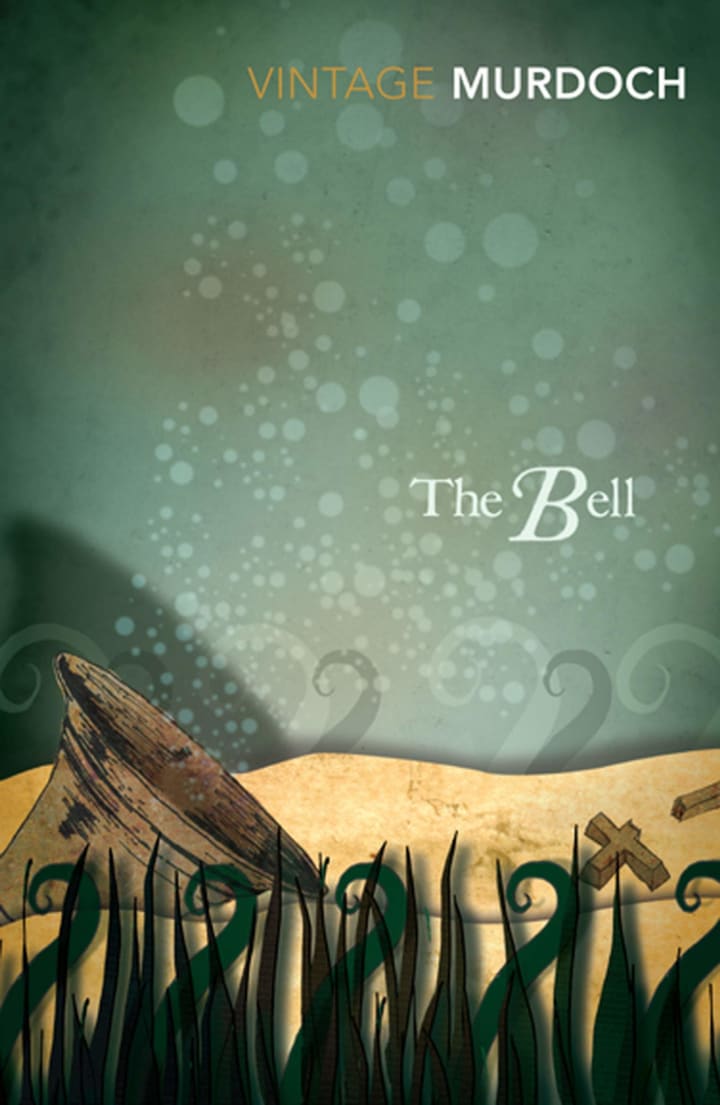
This book about a violent marriage proves that really, both parties are just as bad as each other. A traditional man who believes that the woman should be chained to the housework and bend to his every whim and a woman who proves overtly erratic and is really just out to spend her husband's money, get drunk and cause problems makes for an incredibly unhappy marriage. But when shit starts to get real in a small town, it'll take the sub-genres of crime and thriller to move into this dysfunctional romance in classic dark Iris Murdoch style.
611. Prometheus Bound by Aeschylus
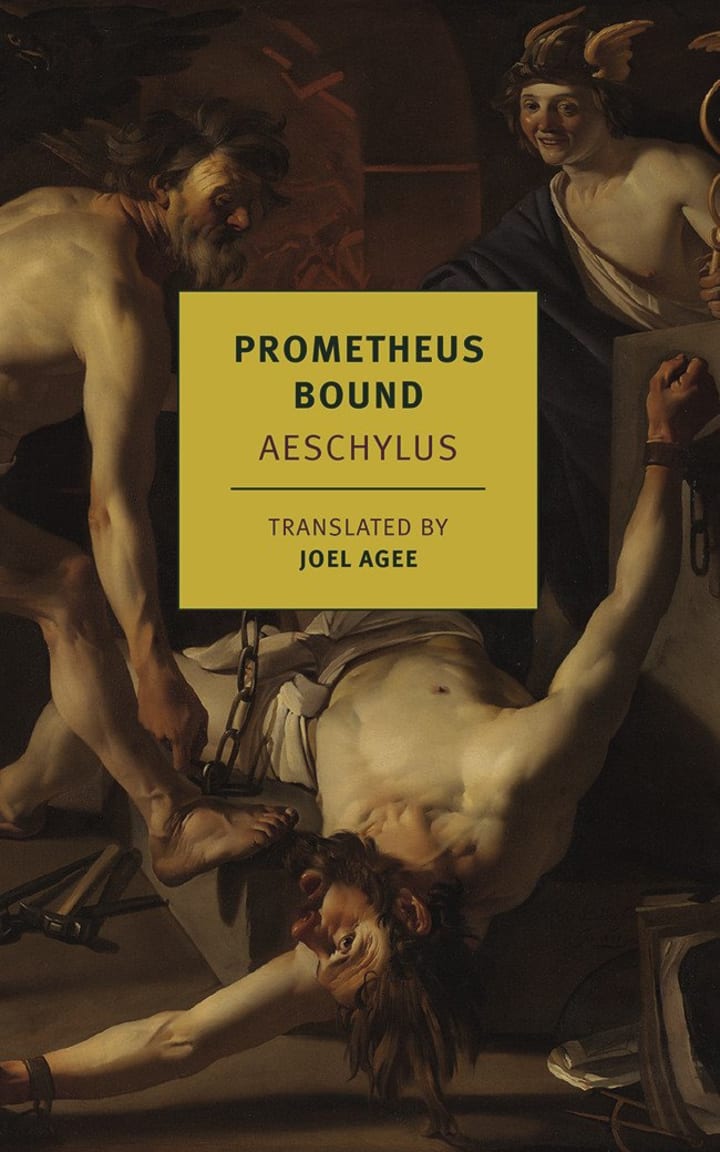
About eight years' ago, I read my first translation of this play and ever since, I've read maybe three or four more. Recently, I read the New York Review Books' translation of it and I can honestly say though it doesn't measure up to other translations - it has a different use. If you are thinking about reading this play for the first time, I would highly recommend this one. It is simplistic and yet, it contains small snippets of the poetic abilities of Aeschylus. Then, you can move on to things like the Oxford Translation, which is my favourite. It is purely sophisticated poetics and very over the top.
612. Jar City by Arnaldur Indriðason
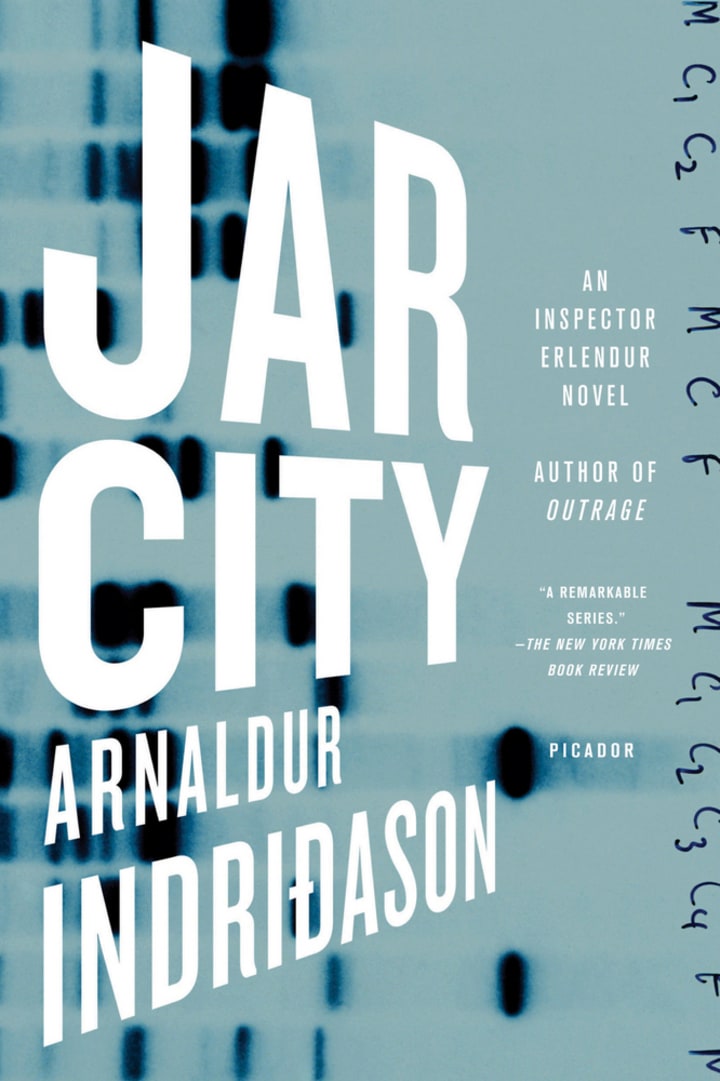
I read this because some other people were reading it online and it looked pretty good. I'm not going to lie, I was completely immersed by the book. It's about a detective who goes into a case investigating the murder of an elderly man but ends up investigating a 40-year-old rape case, a body found under a marshland and a genetic disease and even someone's suicide. It's a twisted case of stolen organs, prime detective work and it is complete with the charm of Icelandic Literature. It was amazing and terrifying at the same time.
613. The Mysterious Stranger by Mark Twain
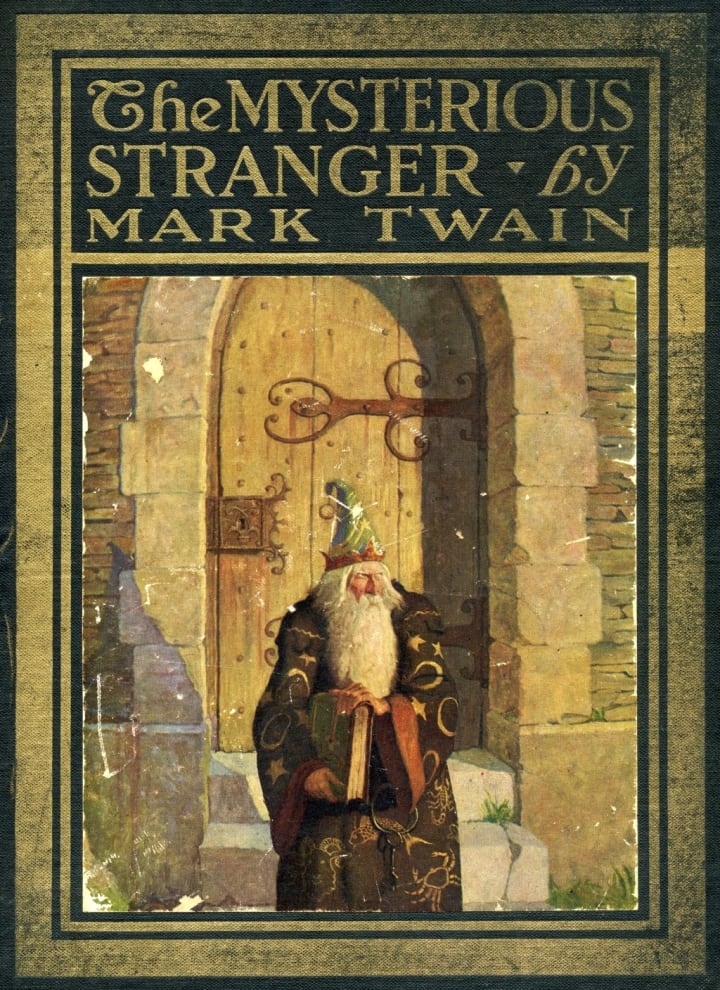
I thought I had read everything by Mark Twain and then I came across this. It is a story about a bunch of church-boys, a stranger and even Satan makes an appearance. But, in the centre of the story is a disjointed and often ill-written atmosphere in which I'm not sure whether Twain ever wanted this published. Released after his death, it seems to be pieced together by other people instead of completely written by Twain himself.
614. The Time of the Angels by Iris Murdoch
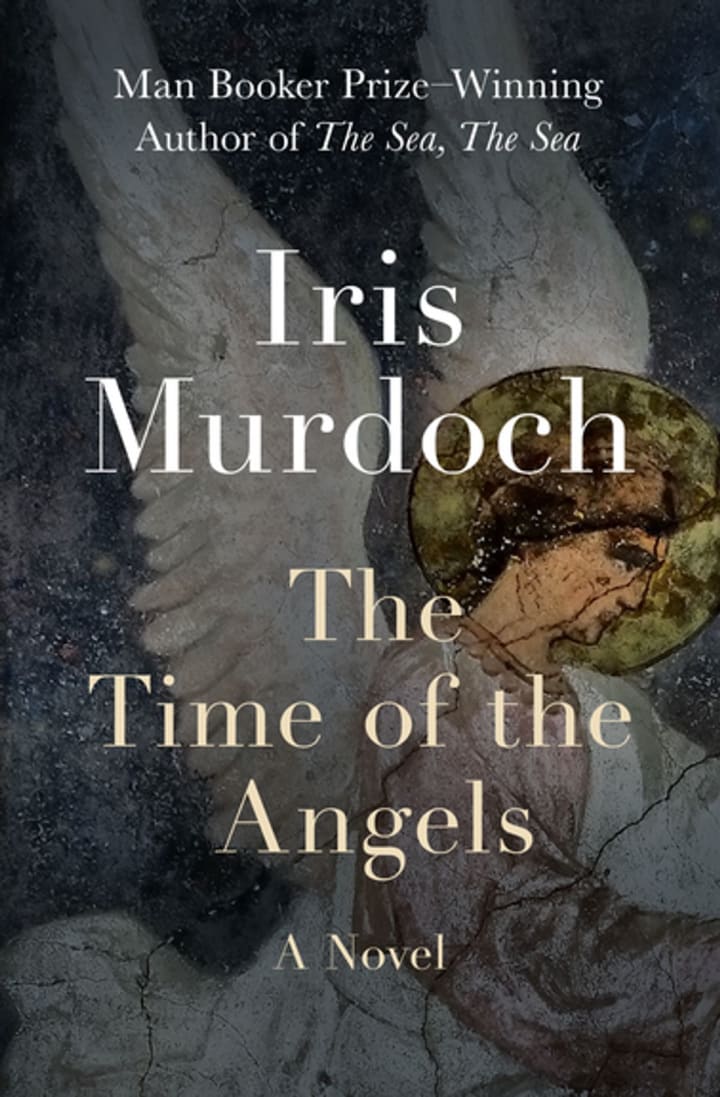
What is morality? Well, not only Nietzsche tries to answer this question, so does Iris Murdoch. In her most philosophical novel, I can honestly say I felt like I was reading a story based on "Thus Spoke Zarathustra". It's about a cast of characters, including a priest, who need to justify their dwindling morality. Apparently, god is dead and his angels have been released. But this might not be enough to bring back a logical conclusion as to what is happening to humanity at this difficult time.
615. The Lair of the White Worm by Bram Stoker
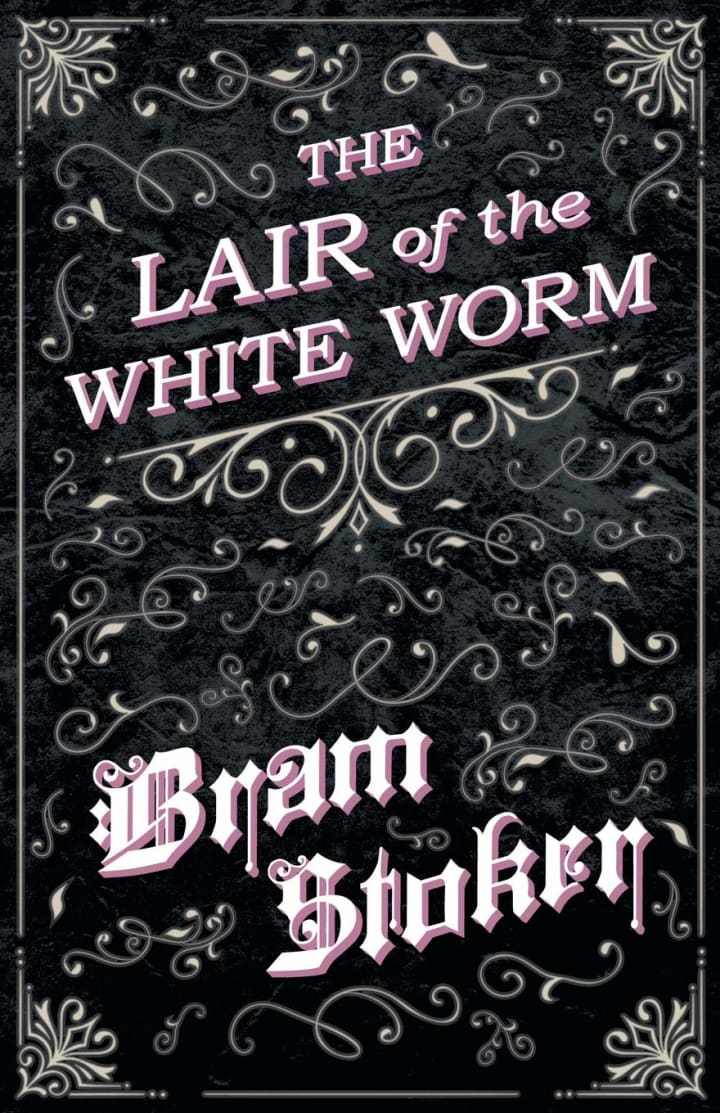
Filled with atmosphere and tension, this very realistic historical horror novel by Bram Stoker was only published just before he died. In a more Lovecraftian style, it deals with something that happened in the distant past that has come back to haunt us in the present day. The characters are very familiar, containing aspects of people like Jonathan Harker and the journeys are very much like those made to and from Dracula's castle. As good as it may be, it is not much compared to his magnum opus but somewhere in the ballpark.
616. The Lost King of France by Deborah Cadbury
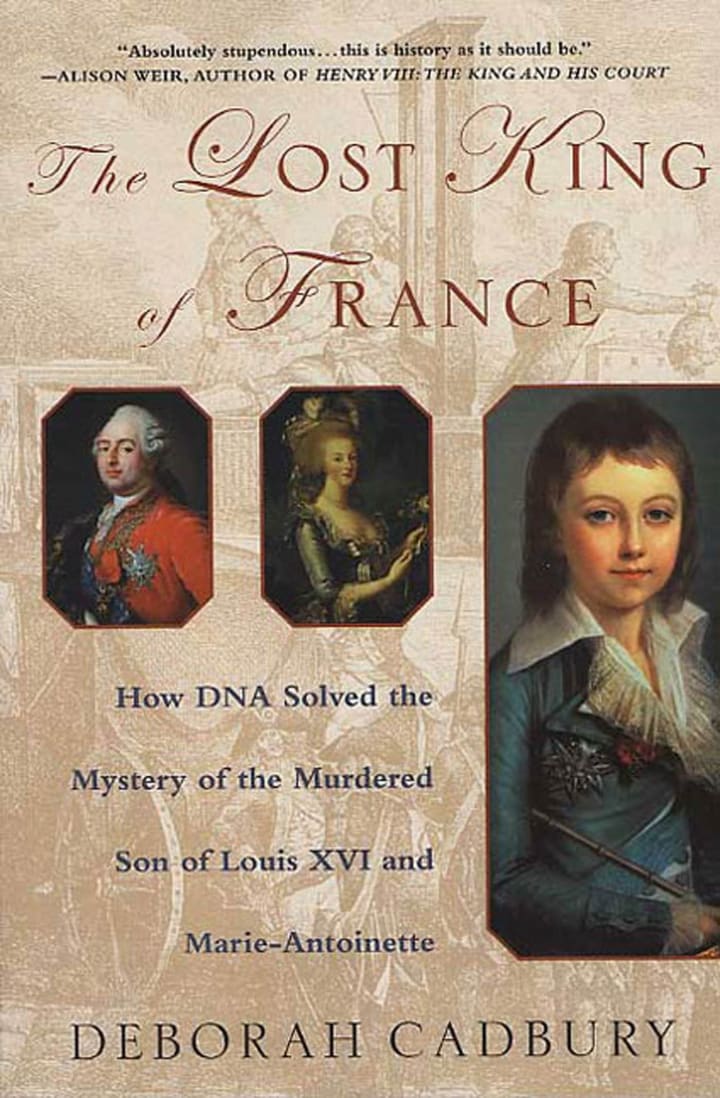
I was meaning to read this for ages and I've owned it for a while. Unfortunately, most of the stuff in this book I already knew - including all the wrongs of the French Monarchy in the Enlightenment Era. However, the amount of research that was done for this book was amazing. There was stuff from the letters Marie Antoinette sent to her friends and family and even quotations on what she said after the birth of her children. It was pretty amazingly written.
617. Memoirs of an Anti-Semite by Gregor Von Rezzori
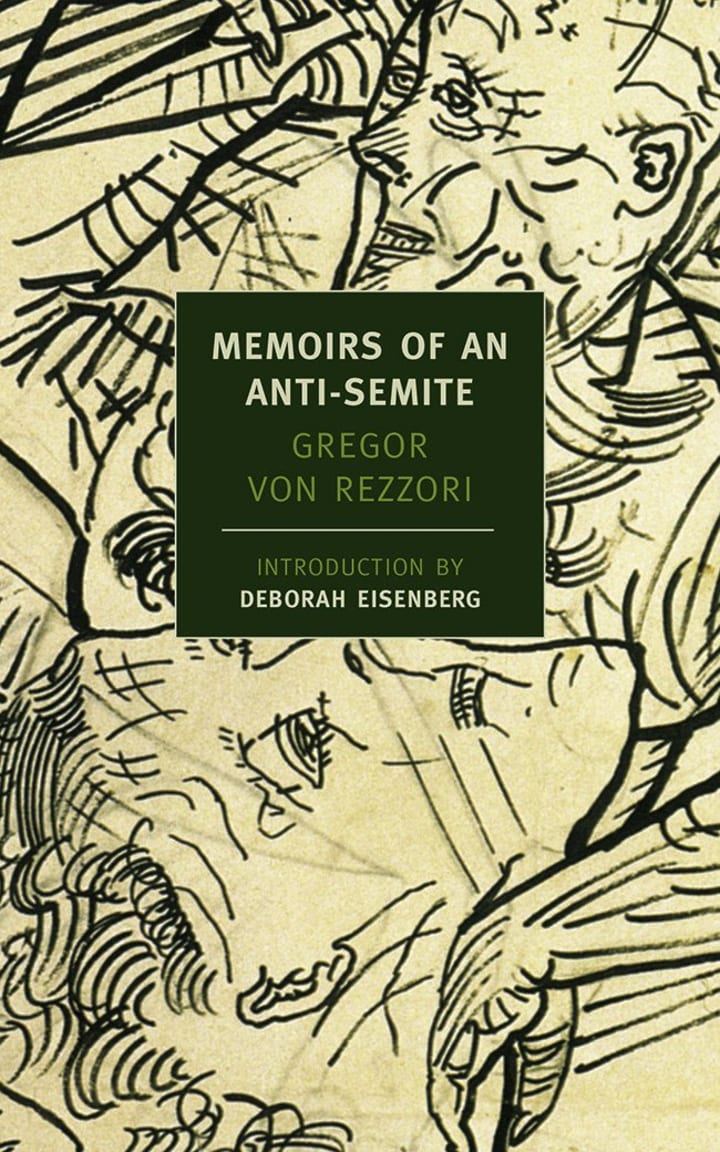
I read this for one of my first impression articles and honestly, it's a pretty great book and makes a pretty satisfying excuse for why anti-semitism should not be tolerated in the modern world at all. The sins and wrongs of the older times are part of the narrator's upbringing whilst he goes on his way to trying to become a better person but failing miserably because he's still got this wretched prejudice inside of him. You can learn more soon when my article comes out on it.
618. Ruth by Elizabeth Gaskell
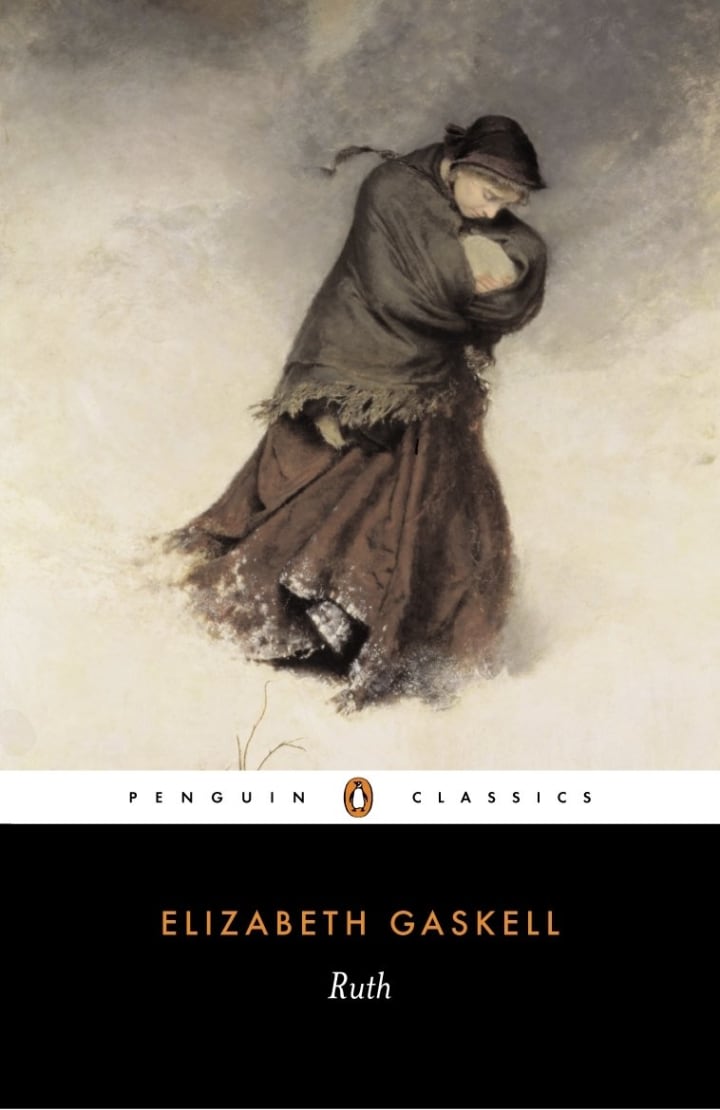
This book is the quintessential 'fallen woman' book and like "Tess of the D'Urbervilles" by Thomas Hardy it deals with the way in which the character is ostracised even though, by no fault of her own, she is socially lower than the man she has chosen to be with. After she gives birth, she encounters a bunch of people pretending to be other people, recognises ghosts of her past and try as she may to better herself, she is further and further pushed out until people see their wrongs - and by then, it is too late.
619. Fear and Loathing in Las Vegas by Hunter S Thompson
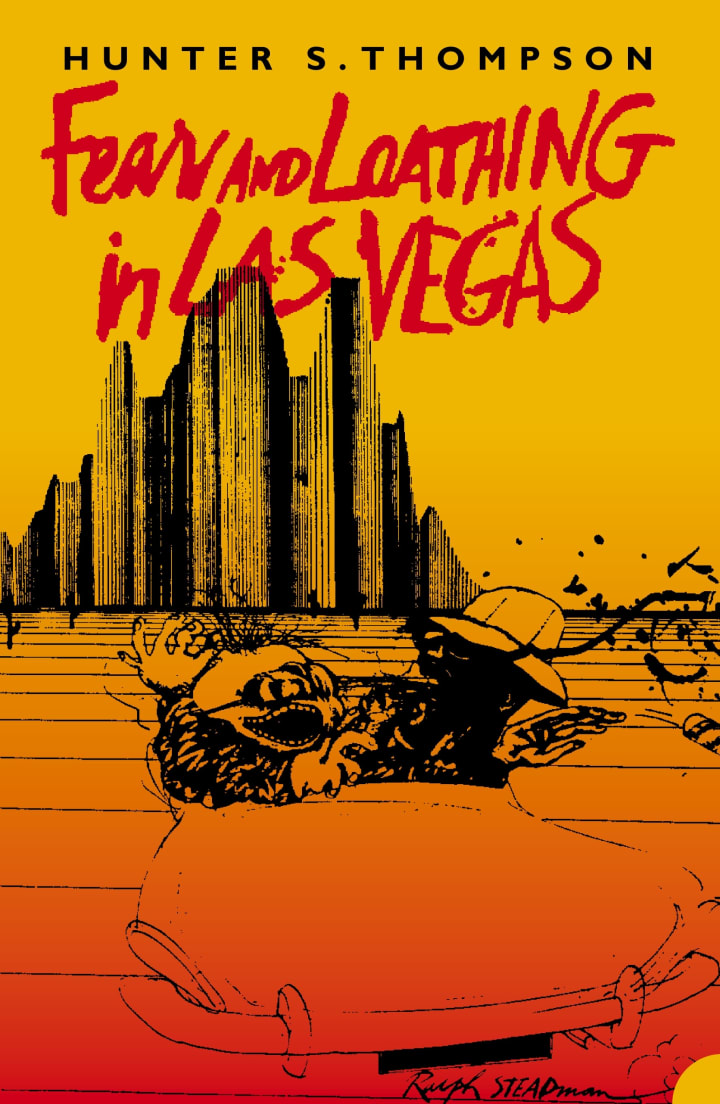
I re-read this for an article I was writing (which is already out now) and honestly, I was surprised to see how bland I thought it was in comparison to how I saw it in my teen years. I think it is mainly because my taste in literature has changed. I appreciate though and forever, the way it is written. A beautiful first-hand journalistic account of a news story that shook the sports world. It was the first of its kind and has been copied ever since. Thompson was a genius and this re-read has only made me appreciate him even more.
620. Furious Hours by Casey Cep
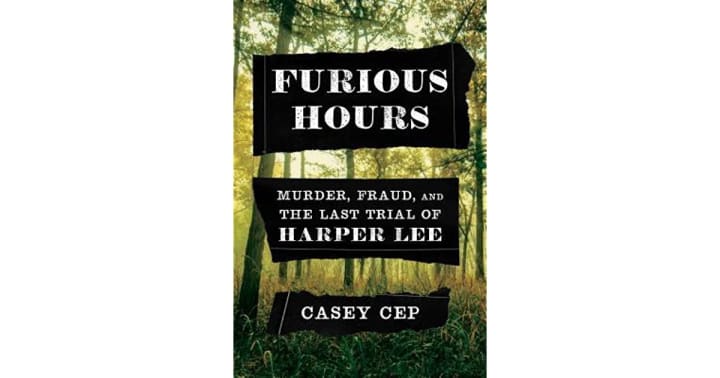
I read this to write an article about it and honestly, it was far better than I thought it was going to be. It addresses the racial prejudices and intolerances in the courtrooms of 20th century Alabama and the way in which a young writer called Harper Lee interpreted this into a novel which became "To Kill a Mockingbird". It also deals with the time after this in which Harper Lee deals with fame, deaths and the uneventful writing of another novel, a more non-fiction one this time and based within something we learn in the previous sections. It is a brilliantly written book with a great amount of research done for it.
About the Creator
Annie Kapur
200K+ Reads on Vocal.
English Lecturer
🎓Literature & Writing (B.A)
🎓Film & Writing (M.A)
🎓Secondary English Education (PgDipEd) (QTS)
📍Birmingham, UK






Comments
There are no comments for this story
Be the first to respond and start the conversation.